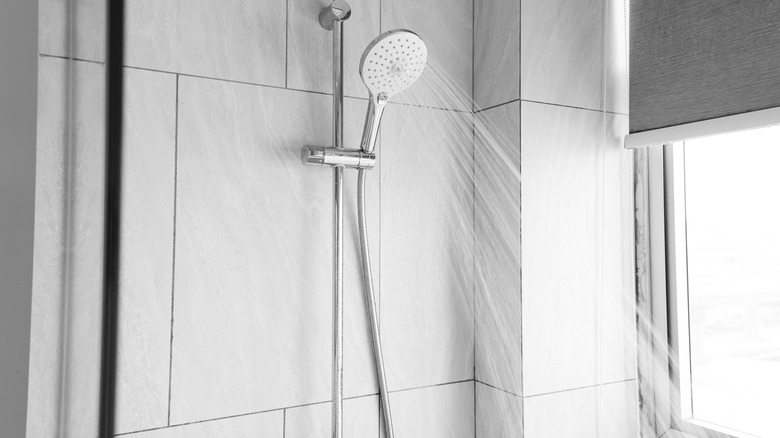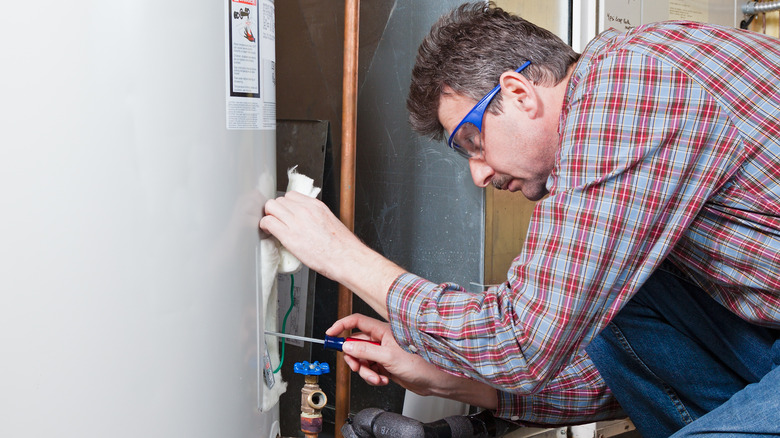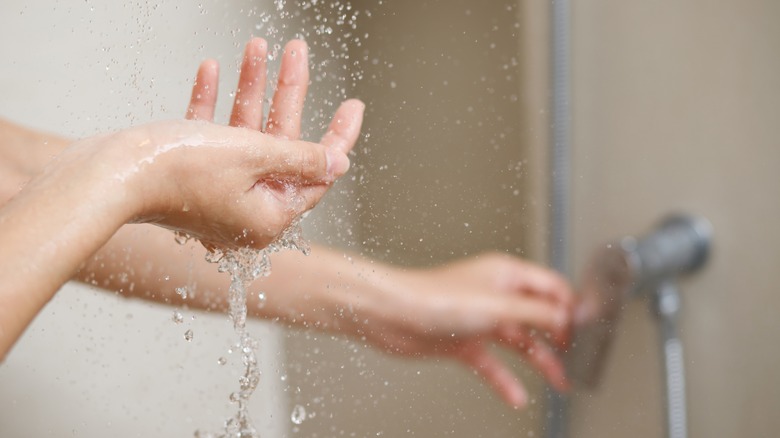No Hot Water In Your Shower? Here's How To Troubleshoot The Issue
Not only can a daily shower keep you clean, but it can also serve as a soothing wake up and a great way to unwind before bed. Unfortunately, your daily shower will no longer provide a stress-free respite if the hot water fails. Taking a cold shower isn't for the faint of heart and it can be jarring to transition from the steamy warmth of a hot water shower.
You may sometimes find that your shower is only providing cold water if you have a large family or if someone has used the shower ahead of you. If your home has a lot of occupants, you need to choose the right water heater size to accommodate them. Other times, however, there's a problem with your heat or plumbing that needs to be dealt with. You'll need to troubleshoot the issue and take steps to fix your problem. If you notice that your shower is cold, you should first check the other fixtures that are in your house and find out whether they're successfully providing hot water or not. This lets you determine whether only the shower is lacking hot water or if you're having issues throughout your entire home. You can then decide how to proceed during the troubleshooting process.
Diagnosing water problems throughout the home
If your entire house lacks hot water, there are a few ways to identify the cause. You'll need to check the water heater and if it's working properly. Verify that the pilot light hasn't burned out. You may need to relight the pilot light to get your water heater working properly again. Your water heater also may have blown a fuse or tripped a circuit breaker. If this is the case, reset the water heater. It's also a good idea to check for loose wires and other electrical problems. Hot water problems may also be due to parts within the water heater being defective. There could also be build up or flue obstructions. Check for sediment buildup in the water heater and ensure that the pipes leading to the shower aren't blocked in some way. You may need to flush or drain your water heater for it to start working properly again.
In addition to these potential causes, look for temperature control issues. Check the temperature control setting and ensure it's set correctly. You may also find that there are problems with the gas supply to your home. The gas line could have obstructions or there could be leaks around connections, so you'll want to inspect it. You should know before installing a gas line that they can be very dangerous. Consider hiring a professional to take a look if you suspect it needs repairs.
Dealing with a shower-specific hot water problem
If you've determined that it's only the shower that is lacking hot water, then you've already narrowed down the problem to some degree. The primary thing to check when troubleshooting this is your shower mixing valve or anti-scald device. Verify that it isn't set too high and preventing water from getting hot enough. Ensure the shower valve isn't broken, but rather open and allowing the flow of hot water. Parts within the valve may also swell up and cause water to be blocked and the O-rings in the shower valve may need to be replaced.
There are many hot water problems that you can identify and fix on your own. However, it's typically best to hire a professional if you're having a hard time determining the cause of the problem, if there are significant issues, or if the problems relate to your gas line. This will help ensure maximum efficiency and safety when working to restore hot water in your shower or throughout your home.


